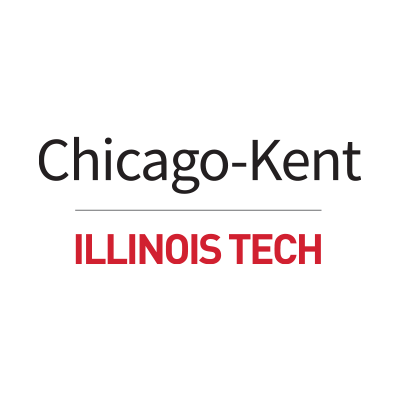Amgen v. Sanofi
- Categories:
- Intellectual Property
- Speakers:
- Robert Surrette | Mariel A. Brookins | Oskar Liivak | Laura Pedraza-Farina
- Duration:
- 58 Minutes
- Format:
- Audio and Video
- Original Program Date:
- Sep 29, 2023
- Product Type:
- On Demand
- License:
- Access for 365 day(s) after purchase.
Description
Held (Gorsuch, J., 9-0): Amgen’s two patent applications — purporting to cover all antibodies that bind and block the PCSK9 receptor involved in LDL cholesterol metabolism — fail to satisfy the Patent Act’s enablement clause, see 35 U.S.C. § 112(a).
Speaker

Robert Surrette Related Seminars and Products
McAndrews, Held & Malloy, Ltd.
Robert Surrette is a Shareholder and serves as President of McAndrews. He focuses his practice on the resolution of intellectual property and technology-related disputes with an emphasis on patent, trademark, trade secret and trade dress litigation. For the last 15 years, Bob has counseled a leading global medical device manufacturer on numerous litigation and transactional matters. Bob, building on his experience as a federal district court law clerk, has extensive experience in preparing and bringing complex intellectual property cases to trial, including overseeing all aspects of pre-trial discovery, procuring and supervising experts, preparing and arguing pre-trial, dispositive and post-trial motions, including claim construction and summary judgment, and participating in multi-week trials. He also has significant experience in appellate proceedings, including arguing at the Federal Circuit. Bob also maintains an active transactional practice through which he advises clients on transactions involving the transfer of intellectual property, including mergers, asset deals, and licensing deals, and on patent portfolio development and management. He has worked in a number of diverse technology areas, such as surgical control systems, wrist implants, insufflators, hospital beds, surgical cutting tools, medical image capture systems, balloon angioplasty catheters, implantable cardiac pacemakers and defibrillators, as well as digital jukeboxes, electronic dartboards, exhaust systems, contact lenses, fluorescent lighting systems, and chillers.

Mariel A. Brookins Related Seminars and Products
Clement & Murphy PLLC
Mariel is an associate at Clement & Murphy PLLC where her practice focuses on appellate and Supreme Court litigation. She has obtained success for clients in multiple cases before the U. S. Supreme Court, both at the certiorari stage and on the merits. She has also authored successful briefs before numerous federal and state appellate courts. Her litigation experience spans a wide range of subject areas, including constitutional law, administrative law, antitrust, bankruptcy, contract, energy, sovereign immunity, and more. Prior to private practice, Mariel clerked for then-Judge Amy Coney Barrett of the U.S. Court of Appeals for the Seventh Circuit and Judge Kevin C. Newsom of the U.S. Court of Appeals for the Eleventh Circuit. She graduated from the University of Michigan Law School, where she was Michigan Law Review Executive Articles Editor and a member of the Campbell Moot Court Competition board, and practiced at Kirkland & Ellis LLP before joining Clement & Murphy. Prior to law school she was a tax CPA at PwC in Chicago.

Oskar Liivak Related Seminars and Products
Professor
Cornell Law School
Oskar Liivak, Professor of Law, graduated from Rutgers College with highest honors in 1994, received a Ph.D. 2000 in physics from Cornell University focusing on techniques for determining protein structure, and received a J.D. from the Yale Law School in 2005.
From 2000 to 2001, he was a post-doctoral scientist working on physical realization of quantum computing in the Quantum Information Group at IBM's Almaden Research Center in San Jose, California. Prior to law school, he served as a patent agent in the Boston office of Fish and Richardson P.C. Most recently, Professor Liivak served as a law clerk to Judge Sharon Prost on the United States Court of Appeals for the Federal Circuit.

Laura Pedraza-Farina Related Seminars and Products
Professor
Northwestern University Pritzker School of Law
Laura Pedraza-Fariña is a Professor of Law at Northwestern Pritzker School of law and a faculty affiliate of the Science in Human Culture Program at Northwestern University. She received her J.D. from Harvard Law School and her Ph.D. in Genetics from Yale University.
Professor Pedraza-Fariña’s research falls into two main areas: innovation law and policy, and international organizations (with an emphasis on those organizations that address global health and intellectual property concerns). Using the mixed methods of network science, science and technology studies (STS), and history of science, Professor Pedraza-Fariña 's scholarship on innovation law has developed a sociologically informed approach to intellectual property (IP) law that focuses on the ways in which both technical and artistic knowledge, and thus innovation, are generated, maintained and modified. Her body of work on innovation law provides a framework for understanding, from both a qualitative and a quantitative perspective, how on the ground innovation dynamics impact innovation outcomes. In turn, in depth knowledge of this relationship between on-the-ground practices and innovation outcomes can help formulate more accurate theories of innovation that can better guide the development of innovation law and policy.
Professor Pedraza-Fariña’s work at the intersection of global health and international intellectual property law analyzes the role of international organizations with overlapping regulatory domains in shaping the relationship between these two legal domains—global health and international IP. Her most recent project analyzes the often contentious relationship between two international organizations with overlapping regulatory domains in these two areas: the World Trade Organization (WTO) and the World Health Organization (WHO).
Her research has been published and is forthcoming in both law reviews and peer-reviewed journals, including the University of Chicago Law Review, Northwestern University Law Review, Notre Dame Law Review, and Osiris.


